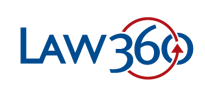
Goldman Sachs, Others Target Investor Claims In Zynga Row
By Sindhu Sundar
Law360, New York (August 12, 2013, 3:50 PM ET) -- Banking giants including Goldman Sachs & Co. took aim Friday at investors in a consolidated suit against
Zynga Inc., Goldman and other underwriters, arguing those investors could not bring claims over Zynga's secondary offering because they had not purchased shares in that offering.
The investors, who claim company insiders misrepresented Zynga's financial health and sold off their stock before a weak second quarter earnings report, did not show enough proof that they have standing to make claims involving the company's secondary offering, the underwriter defendants said in their brief supporting their motion to dismiss. The underwriters, including Goldman, Morgan Stanley & Co. LLC,
J.P. Morgan Securities LLC and
Barclays Capital Inc., facilitated that stock dump, according to the investors' suit.
Even though the plaintiffs may have standing to bring claims related to the firm's December 2011 initial public offering, that did not mean they could sue over the April 2012 secondary offering, the underwriters claimed Friday.
"The ability to bring a claim based on allegedly false statements in one registration statement does not mean that the plaintiff has statutory standing to bring a claim based on a different registration statement for an offering in which the plaintiffs did not purchase securities," the underwriters said in their brief.
The underwriters also slammed the plaintiffs' argument that the secondary offering was aimed at allowing Zynga's officers to sell their stock before the July announcement of the company's bleak finances, arguing the officers could have sold their stock in the open market even without such a secondary offering, according to the brief.
San Francisco-based Zynga develops online social games such as FarmVille, Mafia Wars and Words With Friends that are available on mobile platforms and social networks such as Facebook. It went public in its December 2011 IPO with a market value of $10 billion, opening trading at $11 a share, according to the suit, first
filed in July 2012.
The suit accuses Zynga's top brass of hiding the fact that the company was facing substantial delays in launching new Web games and that its revenue and bookings were entirely dependent on Facebook's online gaming platform. Meanwhile, they deceptively touted significant 2011 investments in international market development, mobile games and technology infrastructure, saying they would drive long-term growth in the latter half of 2012, according to the suit.
The plaintiffs are presented by Joseph J. Tabacco Jr., Nicole Lavallee and Victor Elias of Berman Devalerio and Jeffrey M. Norton, Roy Shimon of Newman Ferrara LLP.
The underwriter defendants are represented by Simona G. Strauss, Bruce D. Angiolillo, Jonathan K. Youngwood and Jeffrey L. Roether of Simpson Thacher & Bartlett LLP.
The case is Mark H. Destefano v. Zynga Inc. et al., case number 12-cv-124007, in the U.S. District Court of the Northern District of California.
